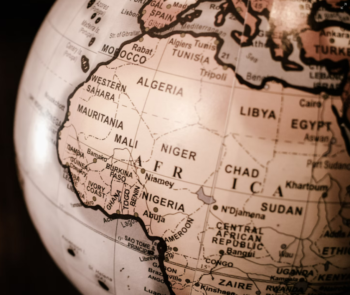
Global Energy Association held the second conference of the Regional to Global cycle in Ethiopia. The event took place on 8 February in Addis Ababa, the capital of Ethiopia and the entire African Union. It was dedicated to the role of Africa in the global energy sector, the recent changes in the energy balance of the region and availability of clean energy sources for local consumers.
The key speakers at the panel discussion “Africa in World Energy Agenda” were Abel Didier Tella (Cote d’Ivoire), the member of the Global Energy Association Board of Trustees, General Director of the Association of Power Utilities of Africa; Andrew Amadi (Kenia), General Director of the Kenya Renewable Energy Association; Mikael Alemu (Ethiopia), CEO and co-founder of 10 Green Gigawatt for Ethiopia; Emeshaw Damtew Zebene (Ethiopia), President of the Ethiopian Nuclear Science Society. Sergey Brilev, the Global Energy Association President, moderated the session.
Participation of African scientists in the Global Energy Prize was one of the topics discussed at the conference. According to Mikael Alemu, the nomination associated with finding new energy applications may be of special interest for the regional researchers. “It’s easier to start looking for applicants who create maximum number of jobs, because that what Africa is about. It would be very rewarding to see who can build the top number of jobs at the most sustainable business using your energy approaches. And that might be more relevant frame for the Prize than pure scientific research,” Alemu explained.
Andrew Amadi said that by far not all the research of African origin could be seen as full-fledged academic publications. “There are many people who do research, mostly practical research. But these studies are not funded, supported, or published, and are largely invisible. But they are there,” Amadi remarked.
Emeshaw Damtew Zebene proposed a more active development of nuclear technologies. “A number of sub-Saharan countries still could not provide full access to the electricity grids. Solar panels may contribute to solving this problem as they are able to generate cheaper electricity in the local environment. Nuclear technologies can also play an important role, when they are used broadly – not only for electricity generation, but as a way to improve healthcare accessibility and to assure food security”, Zebene emphasised.
Abel Didier Tella remarked that the demographic growth currently observed in Africa will become one of the key drivers of the growing demand for electricity over the mid-term horizon. According to him, in sub-Saharan countries 64% of citizens own smartphones, and by 2025 their share will grow up to 75%. At the same time, this region needs to diversify its energy sources in order to provide for all its energy needs. “Solar energy may play an important role for supplying electricity to households, especially with account of a big number of clear days during the year. However, for industrial purposes we need to grow the capacity of gas-fired and hydropower plants,” he stated.
“The role of Africa in the global energy sector is becoming truly multi-faceted. Algeria and Libya are the major suppliers of gas to the European market, the RSA is among the top-ten major coal exporters, Nigeria accounts for significant share of global oil reserves, and Angola occupies a weighty niche in the LNG market. At the same time, the sub-Saharan countries, which are currently undertaking significant efforts to decrease their shortage in electricity, are important growth zones on the global map of hydropower industry. Hence, unlocking the energy potential of Africa is the task of not just regional, but of global importance,” emphasized Sergey Brilev, the Global Energy Association President.